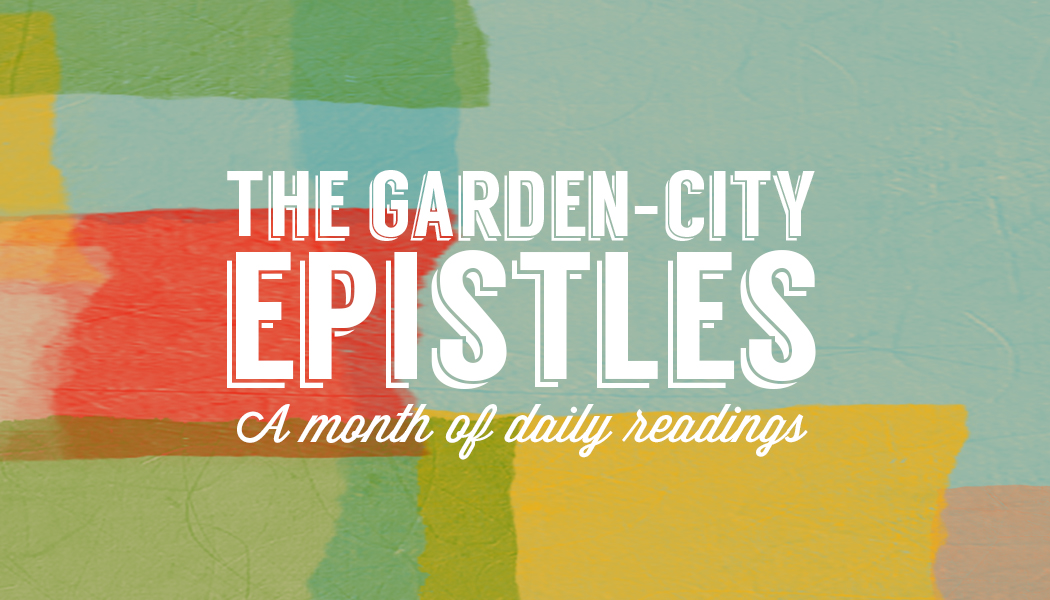This letter is for Travis Coffey, a part-time employee at Westwinds and someone in whom I strongly believe.
By now you’re probably putting together a picture of Eden that is, well, totally wrong.
(Sorry.)
Eden was a garden-temple, and our spiritual ancestors served as guardianers;[1] but don’t let that mislead you into thinking their primary vocation was rest. God gave Adam and Eve a mandate to fill the earth and subdue it,[2] to have dominion over all living things. He also tasked Adam with naming the animals and showed neither interest nor impulse in influencing Adam’s choices or learning them beforehand.[3]
God let Adam cooperate in the work of Creation.
Do you see what this means? Creation wasn’t finished on the seventh day. God intentionally left some parts undone—naming and subduing at the very least, though we’ll see there are many more—so we might have the pleasure of creating alongside our Creator. When he made us to be like him, he also left space for us to co-create.
Remember, Eden was one space within Creation, one area on the globe. I like to envision it as a hillock—an elevated area overlooking the rest of Creation. There’s no real biblical evidence for such topography, but it helps me visualize the relative smallness of the garden. When God told Adam and Eve to fill the earth and subdue it, we’ve got to picture them looking out from that hillock over the untamed wilderness bordering against Eden. The holy couple looks back over their shoulder toward God asking, “That? You sure?” and God replies, “Did I stutter?”
Inherent in the epic of Eden is adventure. Our spiritual ancestors were tasked with a quest of some enormity, and they required the aid of their ingenuity, their intellect, and their descendants to see it done. Their task wasn’t simply to march into the wild and tame a few birds. Nor was it merely a request from God to map out a pathway to the sea, leaving all wilderness untouched. This task would be accomplished by far more “than farming or husbandry; [it will include] the founding of the first city [as one of the] first achievements of [humanity’s] enduring mandate to expand the borders of the garden.”[4]
Too often Christian people think both our origin and our destination are milquetoast, namby-pamby watercolors of dandelion-skipping and harp-playing. But these Pollyanna depictions miss out on what the Bible actually says: there will be danger;[5] this will be difficult; to succeed you will need every ounce of skill, resourcefulness and courage with which God has gifted you, and that still won’t be enough!
God has set us upon a path that only God can navigate.[6] The good news is he isn’t looking for passengers, but for partners in his work of Creation. We have been called to draw together the resources of Creation, to bring wise order to the garden, and to release human potential. We are creators created by the Creator to perpetuate Creation.
Cowboy up. Set forth. Tally Ho.
[1] Guardian-gardeners.
[2] Genesis 1.28.
[3] Genesis 2.19.
[4] Harvie Conn and Manuel Ortiz, Urban Ministry: The Kingdom, the City and the People of God (Downers Grove, IL: InterVarsity Press, 2001), 87.
[5] Psalm 91.
[6] Psalm 32.8; 119.105.
fossores
Related posts
Categories
Category Cloud
Tag Cloud
Recent Posts
- Victors and Victims November 6, 2018
- 3 Hacks for Happiness October 29, 2018
- Hope Against Death September 20, 2018
- The Shape Of The Cross September 19, 2018


